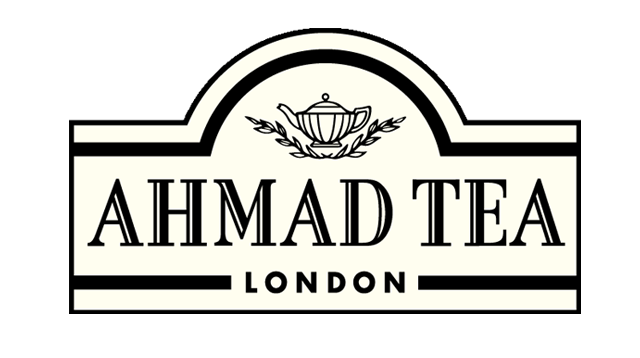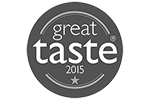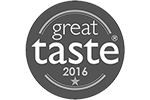-
Kataloog
-
- Jõulukingiideed 2025
- Must klassikaline tee
- Fruit black tea range
- Roheline tee
- Must ja roheline kofeiinivaba tee
- Taimne ja puuviljane kofeiinivaba tee
- Natural Benefits Herbal & Green Teas
- Teekomplektid ja kingitused
- Tea caddies
- Musta lahti tee
- Roheline lahti tee
- Jäätee Cold Brew
- Tarvikud
- Galerie Du The
- Limited Edition
Ahmad Tea Factory. Suurbritannia.
Ahmad Tea - British brand of exceptional quality tea. Unlike the manufacturers of global tea brands, Ahmad Tea Ltd. is the oldest family tea company, where the quality of tea has been always put above the commercial ambitions since its foundation. All efforts of the owners and staff of Ahmad Tea Ltd. are focused on creation of magnificent tea blends. Ahmad Tea Ltd. is a permanent member of the British Tea Bureau and British Tea Association.
-
- Get acquainted - tea!
- Foto
- Video
- Kontaktid
- Peamine
- Get acquainted - tea!
- Tea auction markets
Tea auction markets
Harvested and processed tea comes to the tea-packing factories of different tea manufacturing companies by means of auctions.
The most legendary of all auctions has always been London Tea Auction, which was operating for 311 years and was closed in June 29, 1988.
Until 1669 the main tea suppliers in Britain were Dutch merchants. Historically recorded fact: tea (“three butts of tea powder” - lot was called like that) was for the first time set for an auction at the London Tea Auction on March 11,1679.
From 1706 the regular quarterly auctions of tea have started, which were conducted by Ost-Indian company. Auctions were conducted “by the candle”, i.e. it was possible to offer the prices until the candle of the fixed length was burning (usually 1 inch - 2.54 cm).
After that the London Tea Auction has experienced both the ascent and falls. In the 20-30-ies, as well as in the 50-71-ies of the 19th century the London Tea Auction was the world’s largest tea wholesale center, where not only Indian, but also Ceylon, Indonesian, African, Chinese tea was sold to the European countries.
During the World War II London Tea Auction was experiencing the explainable fall, but in the 80-90-ies of the 20th century the tea trade was almost stopped. Now the tea auctions are moved directly to the producing countries. There are a lot of such auctions in India and China.
The largest tea auctions are held in Coimbatore (India), Guangzhou (China), Mombasa (Kenya), Colombo (Sri Lanka), Limbe (Malawi).
International trade is based on samples of all products taken in the tea factories. On the basis of these samples tea testing specialists of tea producing companies (ie, tea-testers) determine the tea taste, its quality, the most appropriate application, as well as the lot price. The first deals at the auction are carried out in the tea-growing regions and in the places of location of the plantations.
Number of testable samples sometimes reaches a few tens. The samples are checked by their external appearances, by the feel, smell and taste. The dry tea leaves determine the color, proportion of leaves and stems, leaves twist and evenness of their sizes. According the tea infusion the pureness and evenness of colour is determined, as well as the freshness of the smell and bouquette of aroma.
After making the tea beverage, its colour is tested: clear or cloudy, with a darker or lighter shade. To describe the tea in words (an experienced tea-tester is able to distinguish 3000-4000 taste contrasts) the tea-tester has a wide range of professional terms.
The main elements of the taste determination are such concepts as: taste strength, type of the basic taste (aroma, lightness), a possible after-taste, softness , evenness and freshness of taste, visible production errors, acidity (results of the fermentation).
Tea-testers of the company “Ahmad Tea” are considered to be among the most demanding in the world in assessing the smallest tea peculiarities, choosing only the best varieties and lots of teas.
Professionalism of the tea-testers allows determining, if the sample is suitable for mixing directly on the premises. A very large proportion of tea sold worldwide, almost 99 percent of the total quantity, is produced on the tea producing premises.
Tea-testers help to achieve the distinguished taste, the desired quality and price of the production with the trademark of the company. Exactly these blends (tea mixtures) kinds are made under guidance of Tea-testing Director of the company “Ahmad Tea”.
But then, what does this remaining one percent represent? This branded product of the tea trading companies is so expensive variety of tea that it’s not worth including it in the composition of the tea mixtures. These varieties are sold in a form, in which they are cultivated in the plantations of the manufacturer, and the good name of the trading company is the guarantee for the made choice. An experienced buyer knows that in this case the tea flavour can not be typical, but because it does not consist of different varieties of the finished mixture.
Tea-testers of the company “Ahmad Tea” are considered to be among the most demanding in the world in assessing the smallest tea peculiarities, choosing only the best varieties and lots of teas.
Professionalism of the tea-testers allows determining, if the sample is suitable for mixing directly on the premises. A very large proportion of tea sold worldwide, almost 99 percent of the total quantity, is produced on the tea producing premises.
Tea-testers help to achieve the distinguished taste, the desired quality and price of the production with the trademark of the company. Exactly these blends (tea mixtures) kinds are made under guidance of Tea-testing Director of the company “Ahmad Tea”.
But then, what does this remaining one percent represent? This branded product of the tea trading companies is so expensive variety of tea that it’s not worth including it in the composition of the tea mixtures. These varieties are sold in a form, in which they are cultivated in the plantations of the manufacturer, and the good namHarvested and processed tea comes to the tea-packing factories of different tea manufacturing companies by means of auctions.
The most legendary of all auctions has always been London Tea Auction, which was operating for 311 years and was closed in June 29, 1988.
Until 1669 the main tea suppliers in Britain were Dutch merchants. Historically recorded fact: tea (“three butts of tea powder” - lot was called like that) was for the first time set for an auction at the London Tea Auction on March 11,1679.
From 1706 the regular quarterly auctions of tea have started, which were conducted by Ost-Indian company. Auctions were conducted “by the candle”, i.e. it was possible to offer the prices until the candle of the fixed length was burning (usually 1 inch - 2.54 cm).
After that the London Tea Auction has experienced both the ascent and falls. In the 20-30-ies, as well as in the 50-71-ies of the 19th century the London Tea Auction was the world’s largest tea wholesale center, where not only Indian, but also Ceylon, Indonesian, African, Chinese tea was sold to the European countries.
During the World War II London Tea Auction was experiencing the explainable fall, but in the 80-90-ies of the 20th century the tea trade was almost stopped. Now the tea auctions are moved directly to the producing countries. There are a lot of such auctions in India and China.
The largest tea auctions are held in Coimbatore (India), Guangzhou (China), Mombasa (Kenya), Colombo (Sri Lanka), Limbe (Malawi).
International trade is based on samples of all products taken in the tea factories. On the basis of these samples tea testing specialists of tea producing companies (ie, tea-testers) determine the tea taste, its quality, the most appropriate application, as well as the lot price. The first deals at the auction are carried out in the tea-growing regions and in the places of location of the plantations.
Number of testable samples sometimes reaches a few tens. The samples are checked by their external appearances, by the feel, smell and taste. The dry tea leaves determine the color, proportion of leaves and stems, leaves twist and evenness of their sizes. According the tea infusion the pureness and evenness of colour is determined, as well as the freshness of the smell and bouquette of aroma.
After making the tea beverage, its colour is tested: clear or cloudy, with a darker or lighter shade. To describe the tea in words (an experienced tea-tester is able to distinguish 3000-4000 taste contrasts) the tea-tester has a wide range of professional terms.
The main elements of the taste determination are such concepts as: taste strength, type of the basic taste (aroma, lightness), a possible after-taste, softness , evenness and freshness of taste, visible production errors, acidity (results of the fermentation).
Tea-testers of the company “Ahmad Tea” are considered to be among the most demanding in the world in assessing the smallest tea peculiarities, choosing only the best varieties and lots of teas.
Professionalism of the tea-testers allows determining, if the sample is suitable for mixing directly on the premises. A very large proportion of tea sold worldwide, almost 99 percent of the total quantity, is produced on the tea producing premises.
Tea-testers help to achieve the distinguished taste, the desired quality and price of the production with the trademark of the company. Exactly these blends (tea mixtures) kinds are made under guidance of Tea-testing Director of the company “Ahmad Tea”.
But then, what does this remaining one percent represent? This branded product of the tea trading companies is so expensive variety of tea that it’s not worth including it in the composition of the tea mixtures. These varieties are sold in a form, in which they are cultivated in the plantations of the manufacturer, and the good name of the trading company is the guarantee for the made choice. An experienced buyer knows that in this case the tea flavour can not be typical, but because it does not consist of different varieties of the finished mixture.
Tea-testers of the company “Ahmad Tea” are considered to be among the most demanding in the world in assessing the smallest tea peculiarities, choosing only the best varieties and lots of teas.
Professionalism of the tea-testers allows determining, if the sample is suitable for mixing directly on the premises. A very large proportion of tea sold worldwide, almost 99 percent of the total quantity, is produced on the tea producing premises.
Tea-testers help to achieve the distinguished taste, the desired quality and price of the production with the trademark of the company. Exactly these blends (tea mixtures) kinds are made under guidance of Tea-testing Director of the company “Ahmad Tea”.
But then, what does this remaining one percent represent? This branded product of the tea trading companies is so expensive variety of tea that it’s not worth including it in the composition of the tea mixtures. These varieties are sold in a form, in which they are cultivated in the plantations of the manufacturer, and the good name of the trading company is the guarantee for the made choice. An experienced buyer knows that in this case the tea flavour can not be typical, but because it does not consist of different varieties of the finished mixture.e of the trading company is the guarantee for the made choice. An experienced buyer knows that in this case the tea flavour can not be typical, but because it does not consist of different varieties of the finished mixture.







